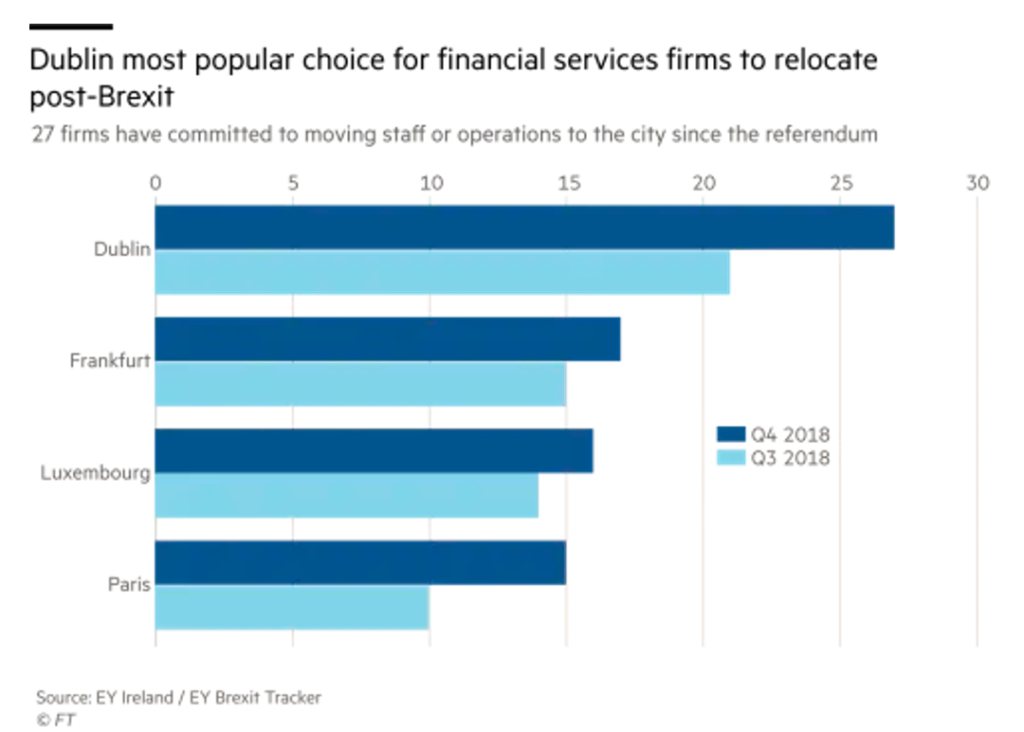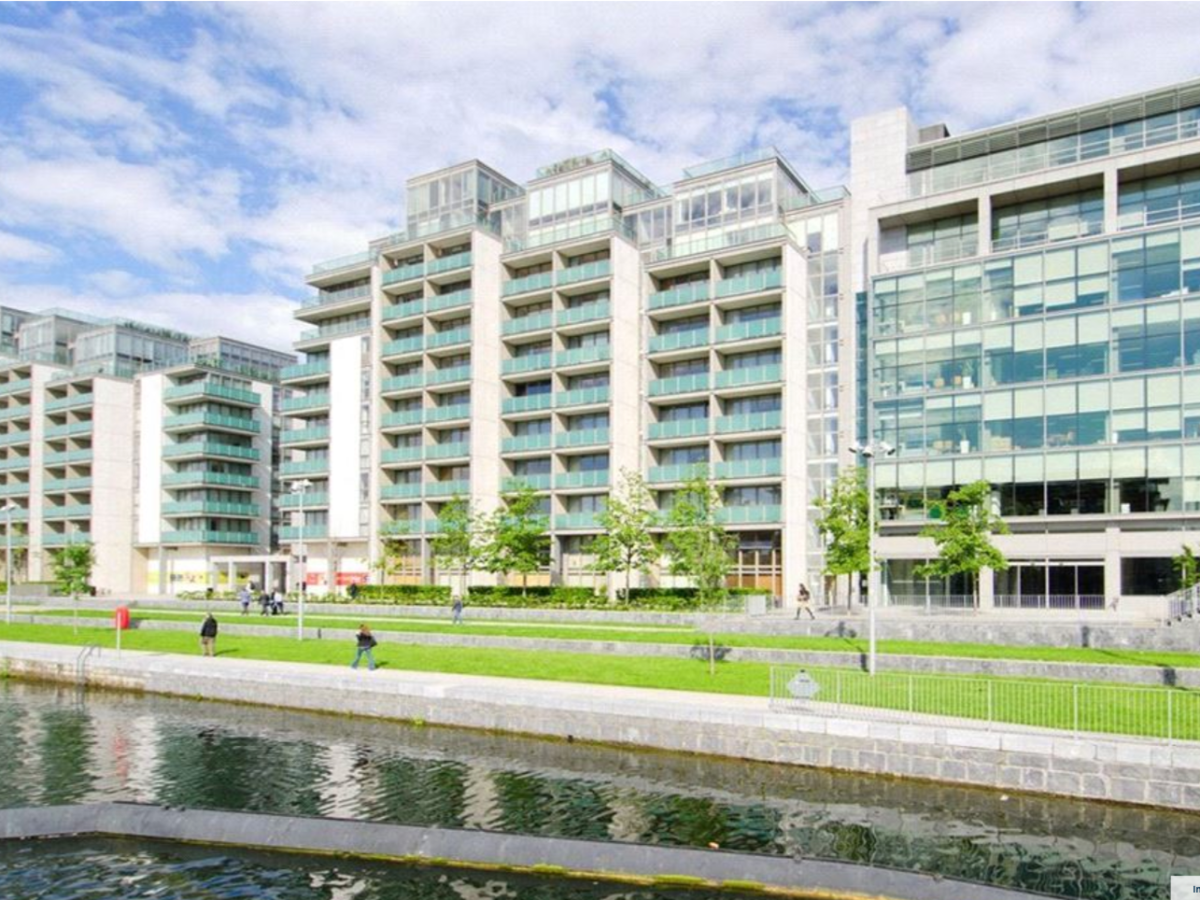
Dublin Property Impact: The Benefit of Brexit
There’s no doubt that there will be a big impact of Brexit throughout the EU’s economy with the UK being predicated by many as the biggest loser. But who will be the biggest winner? In this piece of analysis I will outline why I believe Dublin city centre and particularly the IFSC micro-economy will benefit, and how this will impact on the property market in this area.
Global companies choose Dublin for access to European Financial Markets
According to EY, Dublin is the preferred location in Europe for both global companies looking to grow by access the European markets, and also by UK companies looking to maintain access to this market. But why Dublin?
Post-Brexit, Ireland will be the only country in the EU which will have English as its primary language which makes it a priority location for US, UK and Asian companies whose corporate language is English. Add into the mix the young, highly-educated multi-lingual workforce available in Dublin, its attractive corporate tax status, pro-business financial regulation and it’s easy to see why Dublin is a very compelling argument for international banks and insurance companies to have their EU HQ there.
By setting up in Dublin, financial services companies can passport their products and services throughout the EU without the need for governmental regulation in each separate country. So if an Asian or American fund wants to enter the European financial services, they would just set up a European HQ or “hub”, and then distribute throughout the other jurisdictions. Similarly the UK, which has pre-Brexit access to these markets, but after Brexit these rights will be removed, irrespective of Deal or No Deal.
This is why Dublin is the no.1 location for UK financial services companies looking to move more assets and staff to Dublin to maintain access to the important European markets.
It’s no secret that companies like Barclays, JP Morgan, Bank of America have invested heavily in Dublin for the long-term. They have moved billions of euro in capital, and have also entered long term office leases as they transfer their highly paid UK workers to Dublin and hire additional local staff. For example, in 2019 Barclays Bank moved €190bn worth of assets to Ireland, with UK-based workers to follow.
The IFSC isn’t a short term fad, but is a long term government backed strategy to provide simplified and stable access to European financial services markets. From humble beginnings back in the early 1990s, Dublin’s International Financial Service’s Centre (IFSC) has now over €5 trillion worth of asset under administration. The global bank Citibank have a presence in Dublin for over 50 years and which now employers over 9,000 at its European hub. Their competitors also have a large presence in Dublin including J.P. Morgan (c.1,000 employees), State Street (c. 2,500), BNY Mellon (c.1,700).
IFSC Fun Facts and Figures
- 500+ banks, insurers, finance and fund service companies
- Over 1,000 different fund managers
- Average salary of €60,100 (c. €3,500 net per month)
- Total Direct Employment of over 38,000
- Comprises 5% of all EU 27 cross-border financial services activity
- All the global advisers: KPMG, EY, Grant Thornton, Deloitte, PwC
- All the global legal firm: Dentons, Walkers, DLA Piper

Brexit Impact on Dublin Property Market
As more companies are attracted to Dublin because of Brexit, this will increase the demand for both local talent and the demand for local rental housing. This will mean that salaries will and rent will both rise.
The influx of overseas workers has exacerbated Dublin’s already chronic housing shortage and has led to very high demand for rental accommodation. As property prices are growing slower than the rate of the rents, the result is that Dublin has now the highest rental yields in any major European capital city.
The average cost of a 1 bed apartment in Dublin 1 (which includes IFSC) is €250,000 and generates an average rent of c. €1,605 resulting in a 7.7% yield. This monthly rent is still less than 50% of an average IFSC workers net income which is affordable considering the high quality, close proximity to their place of work and is often shared with a partner. With new insurers and banks companies coming to Dublin to access the European markets, this is leading to further increases in demand and upward pressure on rent, which is only compounded by the higher than average salaries in the IFSC. So whilst IFSC rents are higher than other parts of the Dublin, the average salaries are higher and increasing at a higher rate than the rents. The result is long queues for newly vacant apartments which I predict will last long after Brexit.
Contact me at colin@spirecapital.ie to see how Spire Capital can help you capitalise on IFSC property market.
Sources: www.spirecapital.ie www.daft.ie www.ifsc.ie www.irishfunds.ie



